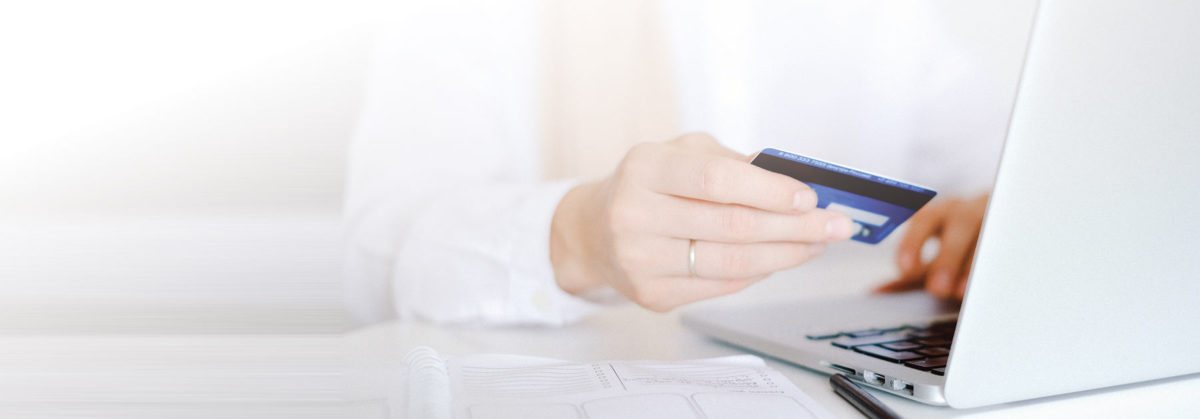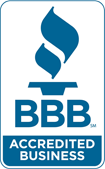
How to Declare Bankruptcy on Credit Cards
The accumulation of credit card debt can become overwhelming in a hurry. Even if you only plan to use credit cards in an emergency, if that emergency lasts several months, the balance, along with fees, high interest rates, and penalties, can leave you staring at a credit card bill that you can hardly believe. If you have the means to pay down this bill quickly before it begins affecting your financial life, this is the best option. However, if your emergency situation isn’t going away and has changed your financial situation permanently, you may want to look into how to declare bankruptcy on credit cards.
The good news is that the majority of credit card debts are eligible for discharge without repayment or partial repayment, should you choose to file for bankruptcy. Filing bankruptcy on credit cards can be a challenging process, but the team at Grainger Legal Services knows how to deliver the results you want to see. Phone us to discuss your situation during a free consultation at 334-260-0500 today.
Understanding Secured and Unsecured Debt When Deciding How to File Bankruptcy on Credit Cards
Understanding how to declare bankruptcy on credit cards starts with knowing how unsecured credit card debt works as compared to secured debt.
All Your Debt Becomes Part of a Bankruptcy Filing
It is important to note that when you file bankruptcy, you cannot just file on one part of your debt, such as credit cards. Filing for bankruptcy must involve all your debts. You cannot file bankruptcy to try to eliminate your credit card balances, for example, while secured loans on your car and home remain unaffected.
The difference between unsecured credit card debt and secured debt is extremely important when you are filing bankruptcy. Regardless of whether you need to file bankruptcy related primarily to secured debt or to unsecured debt, Attorney Chuck Grainger has multiple potential strategies to use to help you with your situation. Our team can fully explain all your options to help you come up with the best solution to your unique situation.
Unsecured Credit Card Debt
When you accumulate debt on your credit card, you are taking out a loan from the bank that gave you the credit card and immediately purchasing goods and services with that loan. Unlike a loan for purchasing a car or a home, though, the credit card “loan” fits under the category of unsecured debt. This means you do not put up any collateral to receive the loan.
Secured Debt
On the other hand, if you default on a car or home loan, the bank may repossess the property before selling it, to try to recover the amount of the loan. This is a secured loan. Some credit card debts can fit under secured loans, primarily those through a department store or a furniture store. The company could repossess the item you purchased with the store credit card to try to recover the amount of the debt. (If you are dealing primarily with secured credit card debt, let our team know, as this can affect our potential strategies for filing bankruptcy on credit cards.)
How to Declare Bankruptcy on Credit Cards With Unsecured Debt
Under bankruptcy laws, you do not necessarily have to repay your unsecured debt. When filing Chapter 7 or Chapter 13 bankruptcy, which are the most common types of bankruptcy proceedings for consumers to file, unsecured debts could receive a discharge. This means you no longer will owe the debt. It will depend on the type of bankruptcy filing you use and on your personal situation.
Although it sounds great to be able to simply allow your credit card debt to go away by filing for bankruptcy, we at Grainger Legal Services know that filing bankruptcy is not the perfect solution for everyone. We are ready to discuss all options with you regarding the best long-term solution to your financial situation. Bankruptcy works well for many consumers who are facing significant credit card debt, but we will thoroughly delve into the facts behind your financial life to find the best way forward. Simply put: We help people get out of the hole.
How to Declare Bankruptcy on Credit Cards When Facing Debt Collection
When you fall behind on your credit card balances, not only will the credit card company begin charging you a higher interest rate and potential penalties, but the company may turn you over to a collection agency. Collection calls can be frightening to receive, as the agencies don’t want to hear explanations for your high credit card balances. After a while, rude and threatening collection agents can leave you almost reluctant to answer the phone.
One of the advantages of filing for bankruptcy when you are facing collection actions is that you can put a stop to these collection calls. At Grainger Legal Services, we know how to file bankruptcy on credit cards with an eye toward stopping creditor harassment. The act of filing for bankruptcy under Chapter 13 or Chapter 7 places an automatic stay on debt collection lawsuits and actions, including phone calls from creditors.
Rules Creditors Must Follow When You Declare Bankruptcy on Credit Cards
Once you declare bankruptcy on credit cards and hire a lawyer, you begin receiving protection under the Fair Debt Collection Practices Act (FDCPA). The debt collector can no longer contact you directly when you hire a lawyer. The collection agency cannot disguise its phone number through caller ID, and it cannot threaten you with jail or penalties. Should you be receiving this kind of treatment, learning how to declare bankruptcy on credit cards can help you avoid it. After you hire us, we will make sure that the collection agency does not violate the FDCPA. Should the agency’s harassment warrant it, we may recommend that you file a civil lawsuit against the collection agency, under rules from the Consumer Financial Protection Bureau (CFPB).
When you are ready to discuss the possibility of filing bankruptcy related to your credit card debt, we are available. We even offer emergency after-hours appointments to discuss your situation if that would be helpful for you. You can reach Grainger Legal Services in any of our three Alabama offices. Call us in our Montgomery office at 334-260-0500, our Prattville office at 334-361-8550, or our Troy office at 334-770-4500.
Using Chapter 7, Here’s How to Declare Bankruptcy on Credit Cards
When wondering how to file bankruptcy on credit cards, filing for Chapter 7 bankruptcy is a common preference for those who qualify for this option. To file for Chapter 7, you must have a limited number of assets. If you pass a means test that shows your lack of assets, you then have the option of filing under Chapter 7.
Often with a Chapter 7 filing, the bankruptcy administrator will determine what assets you have available that you could sell to satisfy your debts, as well as any disposable income you have available. The administrator then will use this money to pay some of your creditors. You often will not have to pay the remainder of your debts.
Determining the Priority of Creditors’ Claims
If you qualify for Chapter 7 bankruptcy, you probably do not have a lot of extra assets or money available to pay your debts. This means it is likely that some of your creditors will not receive any payment. The bankruptcy administrator will determine the priority through which the creditors will receive payment. Generally, unsecured debts, like credit card debts, will have a low priority for receiving payment or may not even make the list. If so, you likely will be able to discharge your credit card debt once the other creditors receive their payments.
In the typical successful Chapter 7 bankruptcy filing, your credit card debt, along with other unsecured consumer debts like medical costs, could receive a discharge within a few months. Of course, the timing and amount of any discharge of credit card debt will depend on your individual situation. Our team can research the facts behind your need to file bankruptcy and can make a recommendation for you.
Using Chapter 13, Here’s How to Declare Bankruptcy on Credit Cards
A Chapter 13 bankruptcy filing is another option for those wondering how to declare bankruptcy on credit cards. This is the better option for those who cannot qualify for a Chapter 7 filing because they have too many assets or income that is too large. Through Chapter 13, we would set up a plan for repaying some of your debts over a three- to five-year period, giving you time to catch up on your payments and to put a stop to collection agency actions. The bankruptcy court would need to approve your plan, ensuring that it is appropriate based on your assets and on your income.
If you have both unsecured credit card debt and secured debt under Chapter 13, the bankruptcy court likely will decide that it is more important for you to pay off secured debts before considering unsecured credit card debt. Depending on your particular financial situation, your plan may call for paying a percentage of your unsecured credit card debt. Those who have fewer assets than average could pay a smaller percentage of their total credit card debt, while people with an above-average amount of assets could end up needing to pay a higher percentage of their total credit card debt.
Discharging Credit Card Debt
Should you successfully complete your Chapter 13 repayment plan after the three- to five-year period, the bankruptcy court then may discharge the remainder of your unsecured debt, such as credit card debt. However, if the bankruptcy court determines that you still have some disposable income available, it may require you to pay the full credit card debt. Again, our bankruptcy lawyers will be able to explain your options and prepare you for all potential scenarios regarding a Chapter 13 bankruptcy filing with significant credit card debt.
Grainger Legal Services Will Help You With Filing Bankruptcy on Credit Cards
We understand that many consumers dislike the idea of making a bankruptcy filing. They may feel like filing for bankruptcy is similar to giving up or admitting failure. However, when your financial situation is leaving you with sleepless nights or is causing you to avoid picking up the phone for fear of threatening calls from creditors, learning how to declare bankruptcy on credit cards may give you relief that can allow you to return to your normal life faster.
As a Montgomery bankruptcy lawyer, we can explain the pros and cons of filing bankruptcy. If you primarily have unsecured credit card debt, making the decision to file for bankruptcy may be our recommendation. If your credit card debt is small, but you have significant amounts of other kinds of debt, like student loans, you may want to explore other avenues. We will provide advice on the best way for you to move forward, based on the facts of your individual situation. We always take the time to truly get to know you, which is vital for us to be able to give you the best possible service. Call Grainger Legal Services today at 334-260-0500.
Client Testimonial
”Charles Grainger is super personable and nice, very knowledgeable and makes everything very easy.” – Joseph Spitzer (Google Review)


 Attorney Charles Grainger possesses decades of legal experience focused on debtor-creditor law, bankruptcy, and business law. His legal work is designed to help clients overcome debt and secure a stronger financial footing. He also provides legal services to entrepreneurs and business owners. Grainger Legal Services takes a comprehensive approach to debt relief and financial education for clients in south-central Alabama. [
Attorney Charles Grainger possesses decades of legal experience focused on debtor-creditor law, bankruptcy, and business law. His legal work is designed to help clients overcome debt and secure a stronger financial footing. He also provides legal services to entrepreneurs and business owners. Grainger Legal Services takes a comprehensive approach to debt relief and financial education for clients in south-central Alabama. [ 


